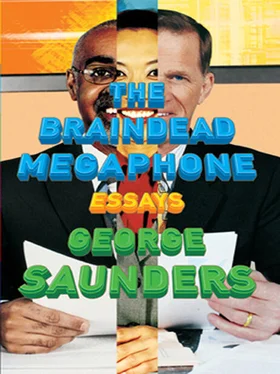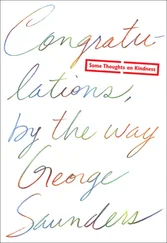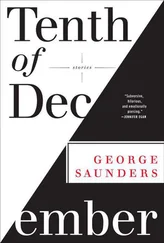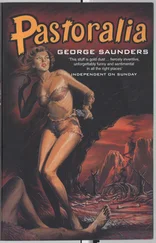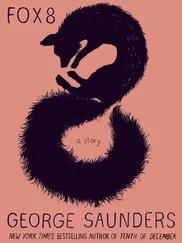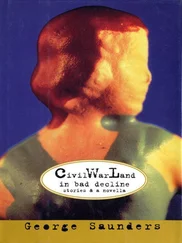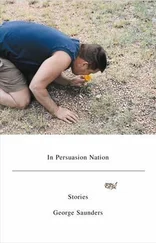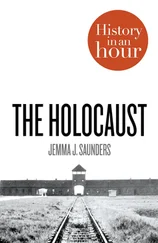I’d like to say I found all of this liberating but at the time I didn’t. I couldn’t stop reading the book, went back and read it again — but in the way earnest young idiots have, I was anxious to discount it. Why? The aliens, the aversion to conventional drama, the jokes, the humility of the book, scared me. I was, then even more than now, a control freak, and the book felt like an ode to the abandonment of control, a disavowal of mastery. The young, Ayn Randish Republican that I was, discounted Vonnegut as one of them : A former hippie, maybe, or proto-hippie, someone who, unlike me, wasn’t earnest/tough/focused enough to be huge, classic, and utterly pure.
It would be years before I grasped the real power and beauty of the book, but a seed had been planted, and whenever I wrote or read something phony-baloney, there in the back of my mind was the Vonnegut of Slaughterhouse Five , looking askance at that false thing, waiting for me to see the falseness of it too.
Humor is what happens when we’re told the truth quicker and more directly than we’re used to. The comic is the truth stripped of the habitual, the cushioning, the easy consolation. An “auditorium filled with two thousand men and women eagerly awaiting a night’s entertainment” could also correctly be described as “two thousand smiling future moldering corpses” or “a mob of bodies that, only hours earlier, had, during the predressing phase, been standing scattered around town, in their underwear.”
This rapid-truthing is what Vonnegut does with the war. He takes an unusual vector through it. He refuses the usual conceptual packaging we associate with “war” and “soldiers” and “battles” and “prisoners of war.” “Soldier” is taken apart with a sad, sharp eye: “Billy was wearing a thin field jacket, a shirt and trousers of scratchy wool, and long underwear that was soaked with sweat. He was the only one of the four who had a beard. It was a random, bristly beard, and some of the bristles were white, even though Billy was only twenty-one years old. He was also going bald. Wind and cold and violent exercise had turned his face crimson. He didn’t look like a soldier at all. He looked like a filthy flamingo.” Even the German soldiers are mere guys in uniforms. Even the German attack dog is real and pathetic (cowering, stolen from a farmer, named Princess).
At the heart of Vonnegut’s voice is a humility my earnest young self didn’t feel comfortable with: In it, I heard evidence of real humiliation. War really was hell, with hell being the place where whatever you normally counted on or leaned on was taken from you, absolutely. Billy Pilgrim is a skinny virginal dork, and when he gets to war, war leaps on his skinny dorkitude and devastates him unglamorously, and haunts him ever after. Wild Bob is just some guy from Wyoming who gets all forty-five hundred of his men killed, then dies insane in a boxcar. Roland Weary, a Hemingway stand-in, all self-control and stealth, ends up trudging along on feet bloodied from the little boy’s clogs he’s forced to wear, sobbingly begging Pilgrim to “Walk right! Walk right!”
Vonnegut seemed to have been in a place where all the comforting verities had been stripped away, and was now cautiously trying to reconstruct a meaningful language out of what scraps of certainty he had left. Better to say too little, he seemed to feel, than too much, if, in saying too much, you might say something false. He’d been rendered a minimalist by aversion to bullshit and, if anything, was more of a purist than Hemingway in this regard.
Early in the book, Vonnegut is confronted by Mary, the angry wife of his old war buddy, Bernard V. O’Hare. She knows the kind of war novel he’s going to write. “You’ll pretend you were men instead of babies,” she says, “and you’ll be played in the movies by Frank Sinatra and John Wayne or some of those other glamorous, war-loving, dirty old men. And war will look just wonderful, so we’ll have a lot more of them. And they’ll be fought by babies like the babies upstairs.”
He makes her a promise: in the movie of his book, there won’t be a part for Frank Sinatra or John Wayne. In fact, he’ll call his book The Children’s Crusade. It will be, really be, an antiwar book.
And it is.
It didn’t, of course, stop any wars. As Vonnegut reminds us early on, war will not be stopped. When a director friend asks if his book is an antiwar book, Vonnegut replies that he guesses it is.
“You know what I say to people when I hear they’re writing antiwar books?” the friend says. “‘Why don’t you write an anti glacier book instead?’”
No, war will not be stopped. But it is a comfort, in the midst of a war, to read an antiwar book this good, and be reminded that just because something keeps happening, doesn’t mean we get to stop regretting it. Massacres are bad, the death of innocents is bad, hate is bad, and there’s something cleansing about hearing it said so purely.
What good the prophet in the wilderness may do is incremental and personal. It’s good for us to hear someone speak the irrational truth. It’s good for us when, in spite of all of the sober, pragmatic, and even correct arguments that war is sometimes necessary, someone says: war is large-scale murder, us at our worst, the stupidest guy doing the cruelest thing to the weakest being.
It’s not as if the world will ever live by the extreme truth this prophet is speaking. War will never vanish from the face of the earth. Neither will sickness, but it’s good to hear someone praising the blessing of health.
Earlier today, almost forty years after it was written, and in the middle of another war, I sat in my kitchen reading Slaughterhouse Five. The book didn’t stop the current war, and won’t stop the next one, or the one after that. But something in me rose to the truth in it, and I was put in proper relation to the war going on now. I was, if you will, forbidden to misunderstand it. It is what it is: massacre and screaming and confusion and blood and death. It is the mammoth projection outward of the confused inner life of a handful of men. When someone says war is inevitable, or unavoidable, or unfortunate but necessary, they may be right. Vonnegut’s war was necessary. And yet it was massacre and screaming and confusion and blood and death. It was the mammoth projection outward of the confused inner life of men. In war, the sad tidy constructs we make to help us believe life is orderly and controllable are roughly thrown aside like the delusions they are. In war, love is outed as an insane, insupportable emotion, a kind of luxury emotion, because everywhere you look, someone beloved to someone is being slaughtered, by someone whose own beloved has been slaughtered, or will be, or could be.
There’s something sacred about reading a book like Slaughterhouse Five , even if nothing changes but what’s going on inside our minds. We leave such a book restored, if only briefly, to a proper relation with the truth, reminded of what is what, temporarily undeluded, our better nature set back on its feet.
A BRIEF STUDY OF THE BRITISH
STATEMENT OF PURPOSE
I had heard about the British all my life. As a child, I had crushes on a series of Britons, including Hayley Mills, Julie Andrews, and, somewhat problematically, Davy Jones. But for various reasons, including working for a living and not having enough money, I had never been to Britain.
It is my belief that we Americans, geographically isolated as we are, tend to be perhaps not as knowledgeable about other cultures as we might be. This is regrettable. Since we are the sole remaining superpower, it is desirable that we know something about the rest of the world, because otherwise, when we take over different parts of the world, how will we know how good we did?
Читать дальше
